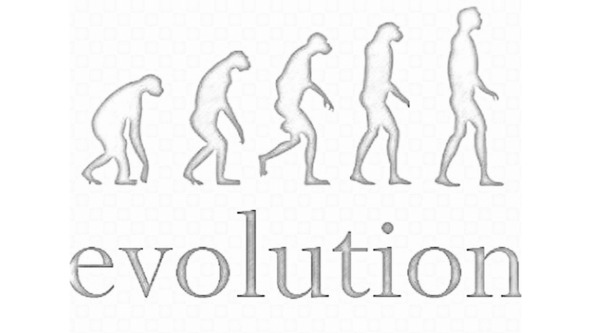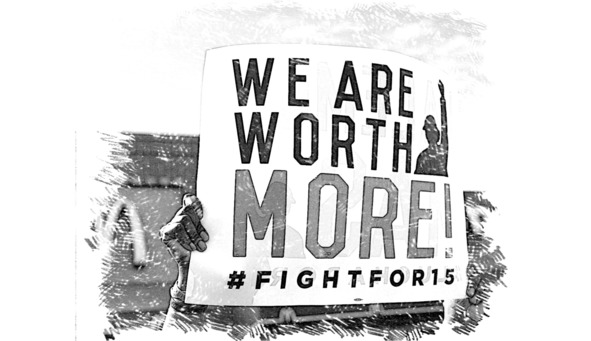
Полная версия
This World is Built on Lies
There are several reasons why users tend to read fictional news and immerse themselves in conspiracy theories.
Social networks catalyze the distribution of “sizzling” content. Sometimes it’s easier and more interesting to get the news about, let’s say, Donald Trump’s jump in blood sugar levels than it is that the Federal Reserve System has changed its key interest rate. An average reader is unlikely to take time diving into the story about the Fed, although potentially it affects him or her more profoundly than the above-exemplified news about Trump’s health.
As a result, struggling for readers’ attention, news producers more and more migrate into a quasi-entertainment format, thereby losing objectivity and credibility. Fact-checking doesn’t matter because it doesn’t sell well anyway.
Most of us view the news as entertainment while lacking media literacy and expert knowledge. We are not used to reading between the lines, let alone looking for useful information in the news – we are just thirsty for sensations not always having time for a thorough review of what we consume and repost. Readers en-masse do not distinguish between info-noise and important news, which is usually more boring.
People want easy explanations of how the world works and the reason for what is happening to them. Given this, various conspiracy theories accommodating aliens, fortune, fate and the “world evil”– provide the most unconditional answers to all, and for this reason graciously kill anything boringly factual.
In this kind of environment there is a growing deficiency of a positive agenda. On top of that, doesn’t it look strange that the politicians and various actors seek our sympathy in their professional affairs inflating the importance of what they do for a living, at the expense of scientists, doctors, builders, writers, real estate agents and others who are not given similar opportunities to share the importance of what they do?
My sad contemplation isn’t anything unique. Many blockbuster authors, at Amazon.com and beyond, raise the alarm of the extreme culmination of corruption, intolerance and mutual hatred lately. Thus, Peter Schweizer has been writing about partiality and corruption for years. There is a growing number of international authors who urge us to leave our comfort zones and identify our real, rather than imaginary, enemies – in order to start building a better future for our children.
The beauty of building new, positive, agendas is that the more people get involved in producing various clickable YouTube (and the likes) content the higher the chance that it will finally become real headline news for the hundred million watchers worldwide. Opportunity to get involved in various professional networks gives us clear added value of shifting our content from one that is very emotionally impactful, but equally disengaging, to one where we can be more proactive and efficient and, hence, satisfied.
In other words, we are in desperate need to become in charge of our own SEO (Search Engine Optimization), and since we live in a modern, highly interconnected and self-replicating, world, we are able to reclaim the right to live our own lives, rather than the lives of those who we see on our TVs.
But…
Everything secret becomes apparent. And this relates not only to the power of thought but also the aura. … Everything secret becomes apparent, and the people will not wait for scientists to confirm the materiality of thought and aura.
The greatest asset of all people is their team work. Our ancient forefathers used to hunt down mammoths and other edible mammals with primitive handheld tools, so what made them powerful was acting as a team; if they were on their own they would have become easy victims. That demonstrated the power of creative teamwork. People are naturally happy to see results of their creative joint efforts, and that is how they develop the much needed positive agenda. Unfortunately, modern politicians and lawmakers lack an opportunity to do something with their hands and literally put money where their mouths are. Instead, their present roles are to nourish their vanity and to be the “winners” (as opposed to disgrace of being the “losers”). This kind of dubious activity tends to leave imprints in our minds. This is how we become charged with the wrong ideas and false goals. This is how we all become unwillingly defrauded.
The modern world’s craze
The modern world is changing so rapidly that our comfort zones no longer exist or have been visibly diminishing. Our typical daily chatters about, let’s say, fairness of our mortgage and auto loan, monthly insurance payments, internet security, the value of our assets and the bank accounts – are more and more often replaced by the political and economic agendas, which become more and more intrusive, and in which we have little power of control. Many people – even those who still live comfortably – complain that “something bad is going on” around them. Supposedly, they are talking about the changing environment beyond their control, and not about anything they are personally responsible for. This is, in fact, very frustrating to feel constant stress and pressure to change something we can’t.

Looking back over 20 years of rapid globalization which was, until recently, assumed an organic part of our existence, created lookalike cities around the world made of the same concrete and steel. Wherever we travel we see similar looking high rise buildings, almost identical coffee and souvenir shops and deja vu big multilevel multi-brand malls. Regardless of where in big cities they live, people in their lookalike cars spend hours in traffic jams, they fly by the same airplanes, they watch the same movies, they boast the same habits, aspirations and ambitions. Although it was mostly a positive experience for peoples and nations, it has created a sort of still waters – an environment where fewer and fewer of us would be able to stand out from the crowd. Those who are into intensive world traveling must admit this all these things happened in a relatively short period of time right in front of our eyes.
This may sound like a joke, but I remember a couple of decades ago something seemingly silly – Thai sweet chili sauce, a really tasty addition to any meal. It was available on sale, apart from in their countries of origin, only in the Thai and Philippine communities around New York, like the ones in Jersey City. Today it is available as a mass-produced pre-packaged sauce in any McDonald’s outlet around the world, and it took only a decade for this tasty, but part of explicitly national cuisine to become a widespread international condiment. Another example. Russian cars have always been somewhat outdated and generally unappealing to own. Today one can hardly make a difference between taking a ride in a Mercedes van or in the latest model of a Russian van called a Gazelle. The latest model of a Gazelle even enjoys automatic door locks and retractable footsteps!
We go to work to similarly looking financial districts consisting of hundred storey skyscrapers – be it New York, London, Tokyo, Shanghai, Dubai or Moscow.
But, the strange thing is, the more uniformly people live around the world the more conflicting became international politics: rising geopolitical tensions, rapidly expanding government borrowing and the threat of more taxes and regulations to jeopardize our common future prospects.
One of the biggest problems is that the cost of living continues to outpace wages in many places. For example, someone earning the $7.25-an-hour federal minimum wage would need to work almost 127 hours a week to afford a two-bedroom rental, or 103 hours a week to afford a one-bedroom rental, according to a report published this year by the U.S. National Low Income Housing Coalition.

As back in the late 1980’s when the Iron Curtain was dismantled and one third of the world opened its welcoming markets to the prosperous and promising free economy, it began its countdown to the time when it has bumped straight into the apparent wall of further expansion. This outcome was easy to predict.
However, over these past thirty years we just enjoyed mutual penetration of the markets and cultures but did almost nothing to sustain the pace of scientific and research progress. Thus the Internet was created in the late 80s— early 90s. Very popular nowadays electric cars were first invented, believe it or not, around the 1870s. The oil fracking technology tracks back to the early 1990s. What else can we mention? Smart phones and smart homes, perhaps? Yes, but one can argue that these innovations appeared as a result of further expansion of the information technologies, the foundation of which were laid out much earlier.
Конец ознакомительного фрагмента.
Текст предоставлен ООО «ЛитРес».
Прочитайте эту книгу целиком, купив полную легальную версию на ЛитРес.
Безопасно оплатить книгу можно банковской картой Visa, MasterCard, Maestro, со счета мобильного телефона, с платежного терминала, в салоне МТС или Связной, через PayPal, WebMoney, Яндекс.Деньги, QIWI Кошелек, бонусными картами или другим удобным Вам способом.

